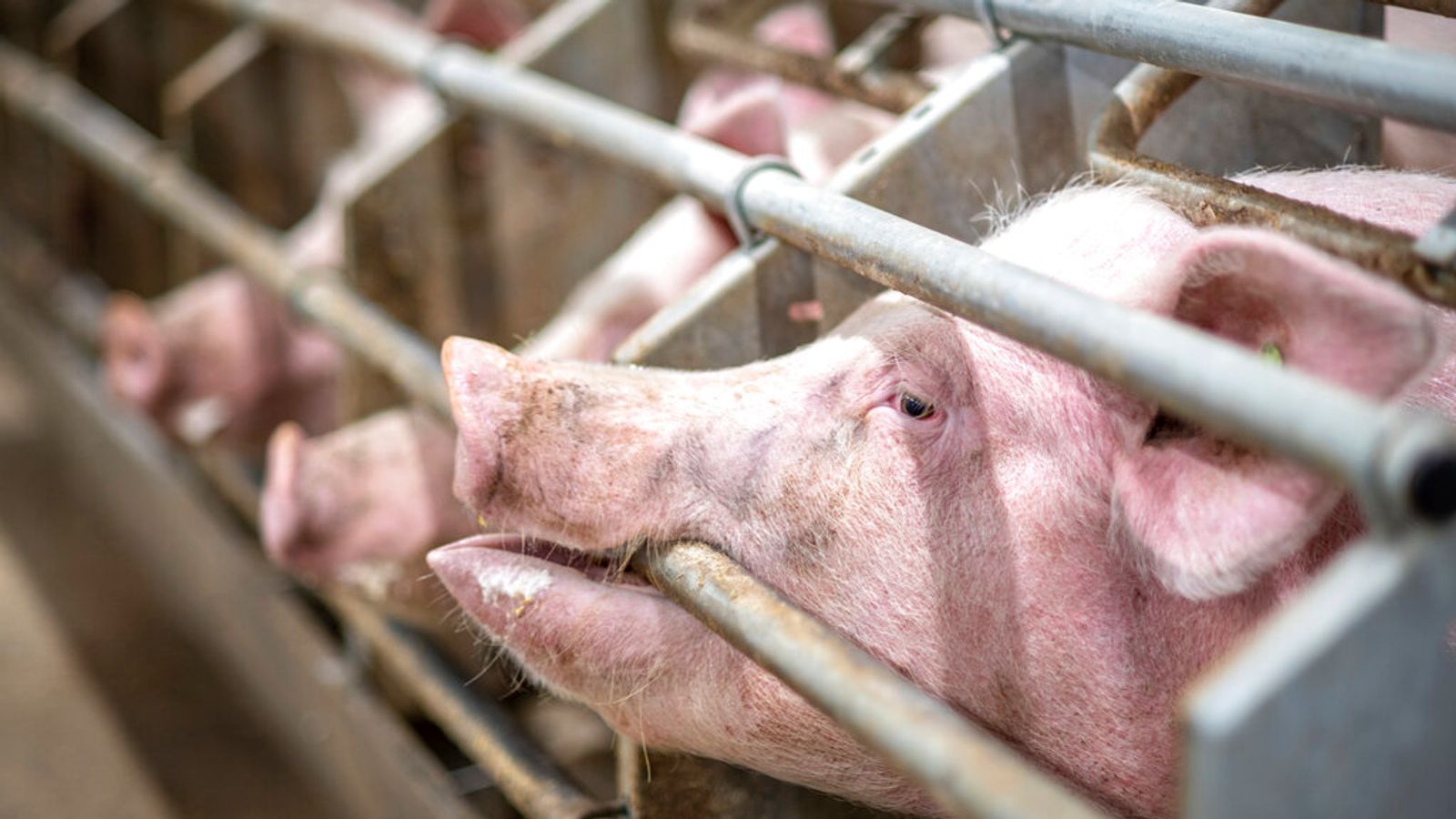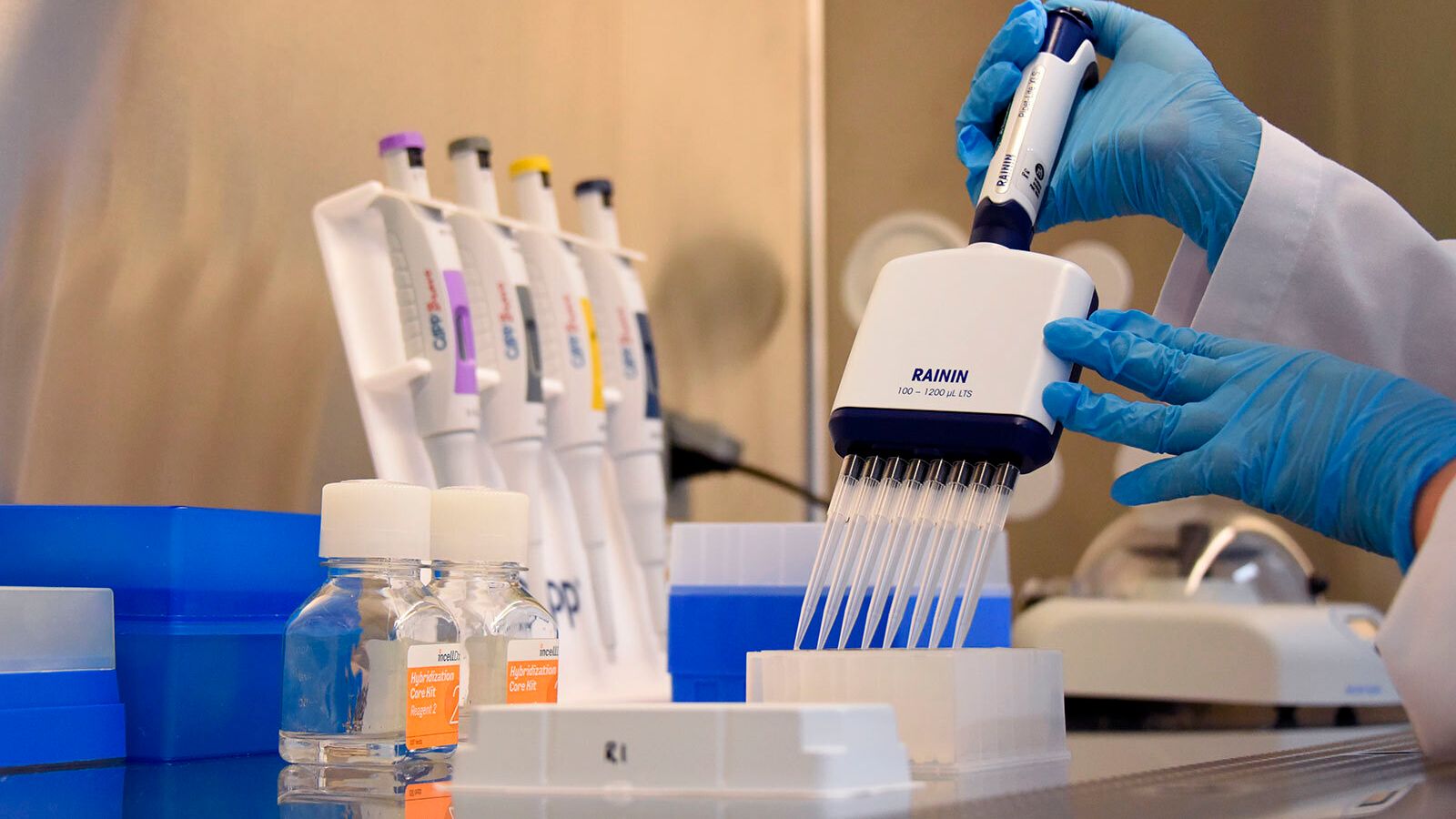The fat from dead pigs and cows is increasingly being used to power planes and cars as a greener alternative, which could end up being even worse for the environment than traditional jet fuel, new research has warned.
The use of animal fat in biodiesel has increased by forty times since 2006, and demand is set to triple by 2030 compared to 2021, according to the study by green campaigners Transport and Environment (T&E).
But there is not enough waste animal fat to scale it up sustainably.
All the animal fat that already exists – usually coming from unwanted animal body parts in abattoirs – is already used in things like candles, cosmetics and pet food.
A transatlantic flight between Paris and New York would need the fat from 8,800 dead pigs each way, according to T&E calculations.
However, animal fats are just one component of sustainable fuel, along with things like vegetable fats and waste crops – and sustainable fuel is still dwarfed by kerosene.
Please use Chrome browser for a more accessible video player
But the figure “illustrates the size of the problem,” Matt Finch from T&E told Sky News. “There are hundreds of transatlantic flights every day. Animal fats will be sucked into aviation, that’s an absolute given.
Delta Air Lines faces possible lawsuit over carbon-neutral claims
Countries divided over United Nations negotiations on treaty to tackle ‘worsening plastics crisis’
Wishcycling: Government to tell people to recycle fewer things to stop contamination by non-recyclables – reports
“But dead animals don’t grow on trees, so if aviation suddenly wants to use a lot of animal fats in its fuels, it can’t be used by other sectors.”
Those sectors would likely turn to palm oil instead, which is cheap and has similar properties.
But all the palm oil produced is already used too, so increased demand would likely require slashing more tropical rainforest to create more plantations.
“This is the worst environmental outcome possible,” said Mr Finch.
If virgin palm oil were to substitute animal fats, CO2 emissions of animal fats biofuels could be up to 1.7 times worse than conventional diesel, the research says.
The shift in uses can “therefore significantly undermine the climate benefits of using animal fats biofuels”, it warns.
The EU is bringing in a sustainable aviation fuel mandate that would allow potentially unlimited amount of animal fats in sustainable fuels.
The UK is still consulting on plans, but is likely to cap animal fats at a maximum of 2%, or ban them altogether.
That’s “good news,” for the impact on palm oil, said Mr Finch. But he beleives the UK mandate risks relying too much on waste products, which are always only ever available in limited volumes.
According to Mr Finch, the most environmentally friendly alternative, is to replace jet fuel with a blend of “green” hydrogen – made from clean electricity – with carbon captured at source from things like factories. But this is expensive and supply is limited at the moment.
A spokesperson from Sustainable Aviation, the UK aviation industry sustainability coalition, called sustainable aviation fuels (SAF) a “here and now solution to decarbonising UK flights.
“They are made from a wide variety of feedstocks that must meet strict sustainability criteria, do not compete with food production and are rigorously certified.
“Future UK SAF production will be largely based on feedstocks like black-bag waste or waste gases.
“The UK has enough feedstock for SAF use to help aviation achieve net zero by 2050, alongside synthetic SAFs made from captured carbon and green hydrogen that we expect to see next decade.”
Watch The Climate Show with Tom Heap on Saturday and Sunday at 3pm and 7.30pm on Sky News, on the Sky News website and app, and on YouTube and Twitter.
The show investigates how global warming is changing our landscape and highlights solutions to the crisis.











